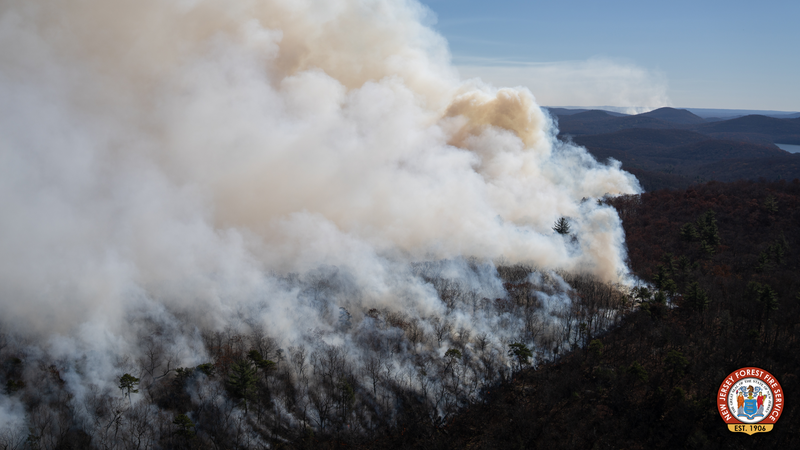
PHILADELPHIA (KYW Newsradio) — Wildfires have been plaguing Pennsylvania and New Jersey recently, communities blanketed by heavy smoke and ash. In this week's conversation with KYW Medical Editor Dr. Brian McDonough: the medical impact of wildfires on your health — especially if you are breathing in smoke day after day.
Michelle Durham: When you think of wildfires, you normally think of the West, in California, but we have had several here — several still burning — and the smoke is just unbelievable. You go down sections of 42 in New Jersey and other spots, and you can smell the smoke in your car.
Dr. Brian McDonough: And you know, what's really interesting, Michelle, if you look at the literature on this, you know, articles written about it, a lot of them were written before we had as many wildfires as we do now. And one of the warnings is: You don't necessarily have to smell it or even see changes in the air to have the impact. Many times it goes unnoticed.
Well, think about it. We're noticing it. So, you know it's already far more concentrated than it's been at times in the past. And it's happening more often. I mean, you know, over the years, you think, "I don't really remember it." Now, we know of instances recently. And it happens several times a year. So it is a concern.
What can people do to protect themselves? I mean, I was in the car going back and forth to the Jersey Shore, and sometimes you're in a position where you're breathing in this smoke, and over a long period of time, how can you protect yourself?
Well, the first thing, the easiest thing to do, is to check the air quality in the community. I mean, you listen to KYW, they'll talk about it. But also, there's an air quality index.
As far as things you can do, if you think it's up, stay inside, especially if authorities are saying that you can have filter air filters in your house or in a room that you're in. Not a bad idea. Use high-efficiency filters. When you have filters, you know they're labeled HEPA. They have different brands.
And the other thing, I think that's really important, is to when you're in your car, understand, if you're in that kind of environment, you don't want to be taking in the outside air. We all have different vents in our cars, which can determine that. Make sure you know how to work that, so that you're not necessarily sucking in air from outside, especially if you're going into one of those areas.
You may start to notice some of the symptoms, and that's the real thing that I think goes unnoticed for many people. The average person, it's almost like they have an allergy attack, like they get allergy symptoms, but they don't have allergies. And we're talking about coughing, wheezing, some difficulty breathing. And you're talking about irritation, stinging eyes, scratchy throat. People will get headaches. And believe it or not, if you get enough exposure, it causes fatigue. It can cause an upset stomach, those types of things as well.
When is it time to call the doctor?
Well, especially if you're someone who has asthma, COPD, heart disease or a chronic illness, be much more careful if you notice that you are really getting symptoms where you're having trouble breathing. Excess mucus production, your head is starting to bother you — at those points, you want to talk with your doctor, because you obviously want to get support.
